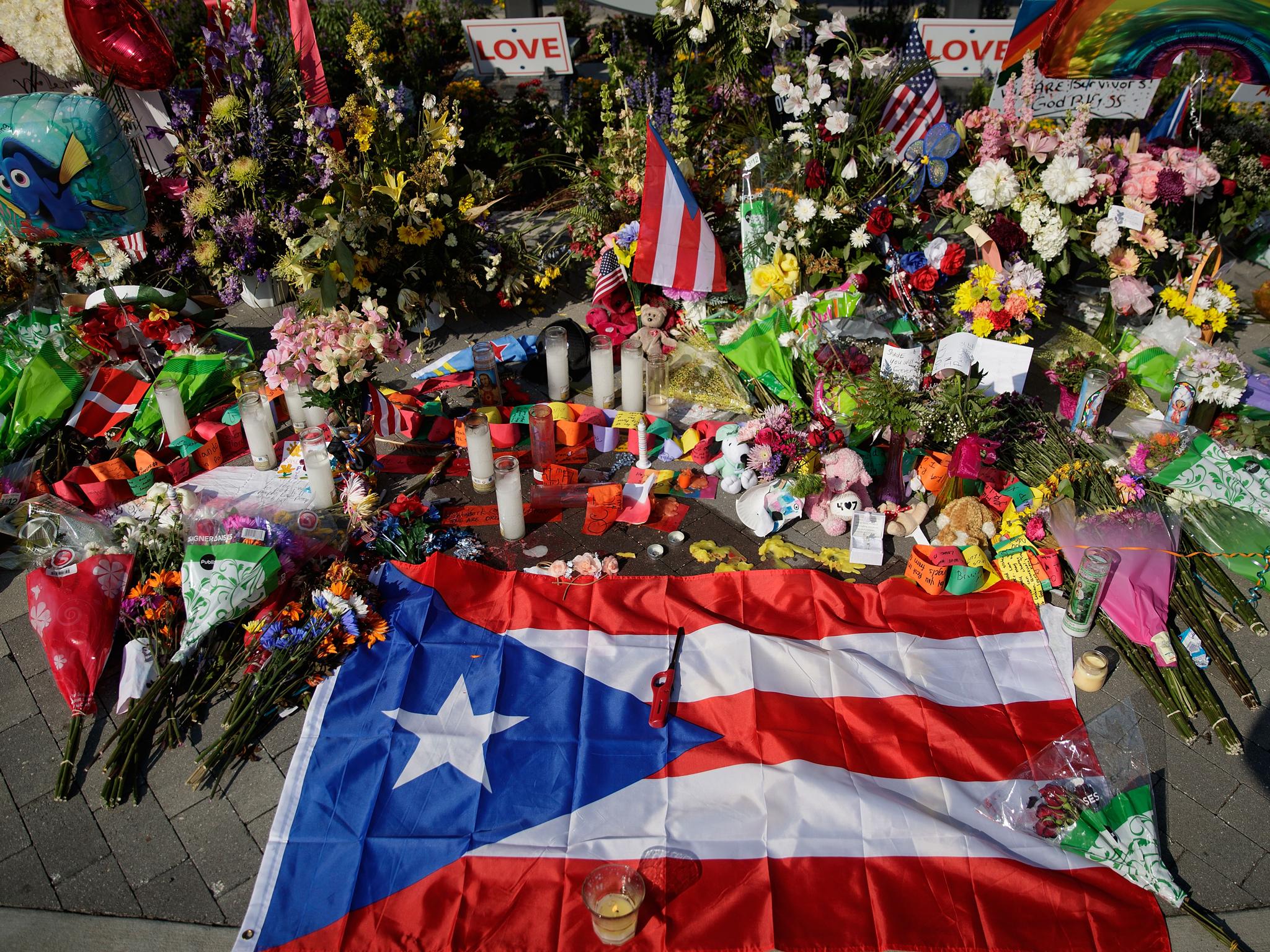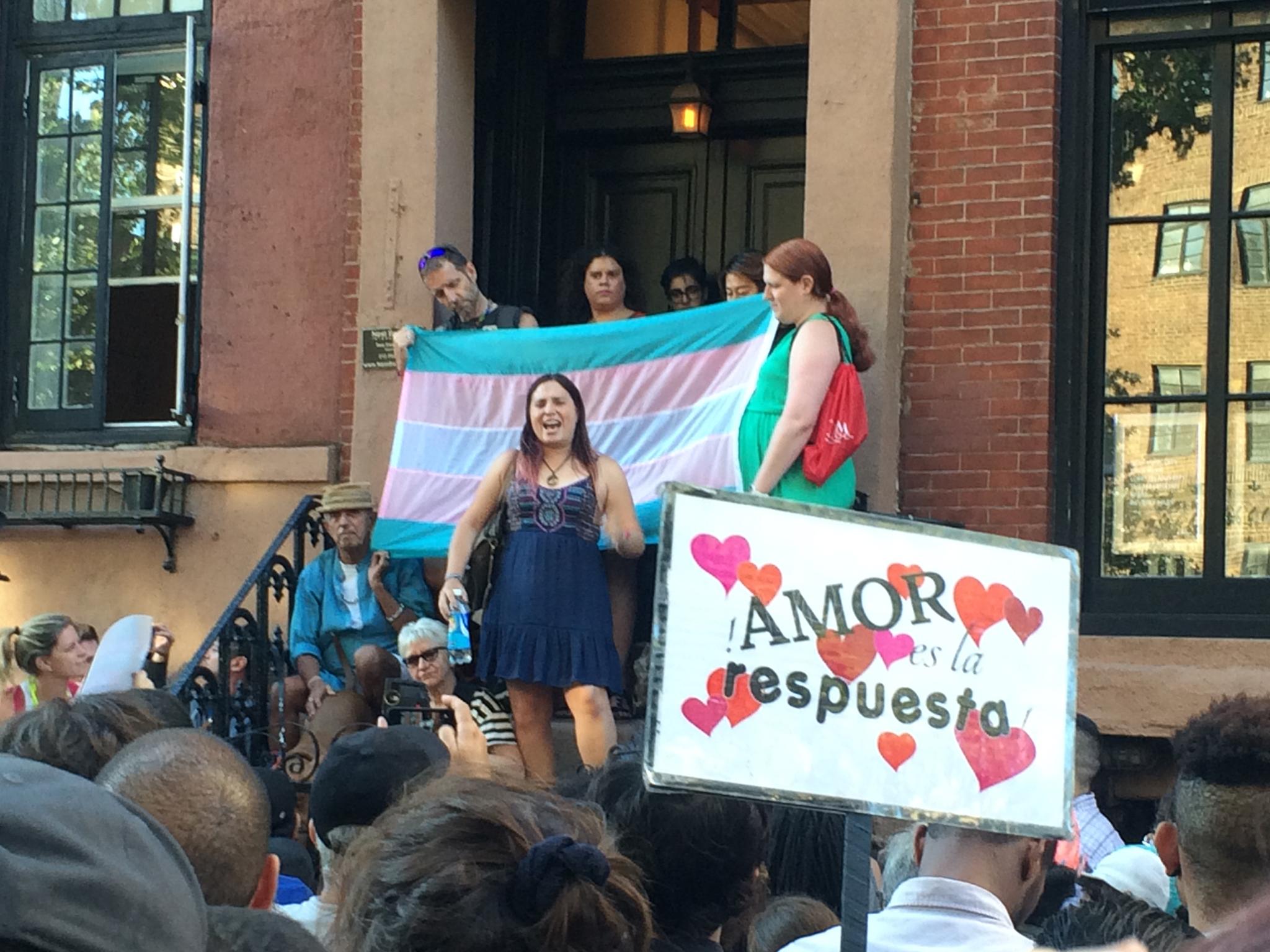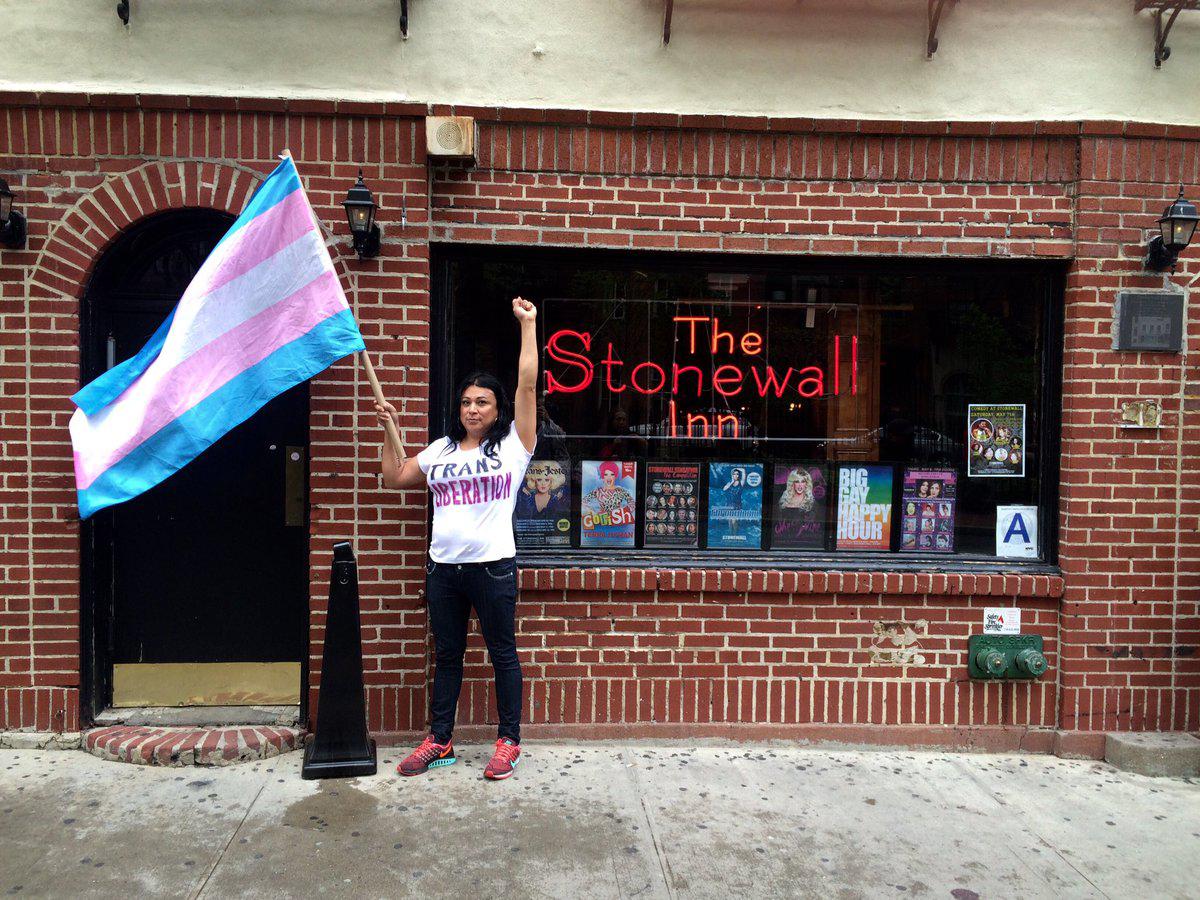Among the Orlando shooting victims, trans Latino advocates hope their stories are told
The mass shooting happened in an increasingly hostile climate for transgender people of colour

Before it was known as the night of the worst mass shooting in US history, it was Latin Night at Pulse - an evening to celebrate the Latino culture of the LGBTQ community in Orlando.
The party at the central Florida discoteque featured transgender and drag performers Jasmine International and Kenya Michaels - the latter was featured on RuPaul’s Drag Race - and boasted reggaeton, merengue, bachata, and salsa rhythms.
“Calling all our Latinos, Latinas, and everyone that loves a little Latin flavour! It's time to party tonight!” the nightclub posted to its Facebook page hours before it would become a household name across the globe.
And as authorities released the names of the 49 people killed by the gunman later that evening, it became clear that the vast majority of the victims - dead, injured, and witnesses - were Latino. More than half were Puerto Rican.
The massacre underscored the surge of violence against LGBTQ communities in the US - particularly black and Latino transgender people. But as coverage of the attack places most focus on the killer and his motivations for the violence - trans Latino advocates see this as a moment to bring the violence against their communities to the forefront of the national discourse.

“When [the media] talks about LGBT right now they just focus on gay people, but i don’t hear in the media ‘queer’, I don’t hear in the media ‘Latinx’,” Arianna Lint, East Coast co-chair of the TransLatin@ Coalition told The Independent, referring to the more gender-inclusive use of “Latinx”.
“I think the media has to explain, too, that there were transgender women at this attack. It’s time to … educate everybody. Don’t make the same errors we made in the past.”
Lint explained that trans women had historically been erased from pivotal moments in LGBTQ history - most famously Marsha P Johnson and Sylvia Rivera, who were crucial figures during the 1969 Stonewall Riots.

“[O]ne need not look outside of the US mainstream to find a climate of extremely violent rhetoric, systems, and laws and policies targeting LGBT people of colour,” the Transgender Law Center said in a statement in the aftermath of the shooting.
“As we mourn those lost … we also hold in our hearts the transgender people, the majority of whom were Black and Brown transgender women, murdered in record numbers this past year.”
According to data from the Federal Bureau of Investigation, 18.6 per cent of all hate crimes in the US in 2014 were motivated by sexual orientation; 1.8 per cent of all hate crime attacks were based on gender identity. Overall, the data show a 1.7 per cent decrease in violence based on sexual orientation from the prior year, but a 1.3 per cent rise attacks on transgender and gender-nonconforming people.
Recent figures from a study released by the National Coalition of Anti-Violence Programs (AVP) show that there were 24 reported hate violence homicides in 2015. Transgender and gender-nonconforming people of colour made of the majority of the hate-violence homicides, the study says.
Other advocates who spoke with The Independent echoed Lint’s statement of acknowledging the ongoing crisis amongst trans people of colour in the US - who are increasingly likely to be victims of physical, and sometimes deadly, hate violence on a daily basis.
“We as a community really need to pay attention to and really challenge the attacks that we are dealing with right now,” Jennicet Gutiérrez, an organiser for Familia Trans Queer Liberation Movement, said.
“It's turned into this really violent tragedy and we need to become more critical of what's happening to us and really centre those voices who are most impacted by this violence: the immigrant community and the transgender community - especially black and Latinx women.”

“We have already lost 11 of our sisters [in 2016],” Gutiérrez added.
The 12 June shooting in Orlando comes at a time when multiple states - most notoriously North Carolina - have passed laws or proposed legislation to restrict restroom access to transgender people under the auspices of religious freedoms. One significant facet of the North Carolina’s House Bill 2 would require individuals to use restrooms consistent with the gender listed on one’s birth certificate - as opposed to gender identity.
“We did see 121 pieces of legislation in the United States this year,” said Rodrigo Heng-Lehtinen, a membership manager for GLAAD. “Pieces of legislation [that are] attempts by people to divide us and stigmatise us and push LGBT - and specifically trans people - into the shadows and into the closets. …
“When you have 121 organised attempts to undermine a community, I think that's a wake up call for everyone.”
Similarly, Gutiérrez stressed the importance of viewing the tragedy in the context of the current political climate.
“Really, people need to look at those names [of the Pulse victims] and people need to read those names carefully and see who were the targets,” she said. “It’s crucial to make the connections between what’s happening politically and how our community continues to be targeted - especially Latinx and trans people of colour.”
She added: “It’s critical that we don’t remain silent, that we don’t remain in the shadows. We have to face and confront this [anti-transgender] sentiment.
“In the end it is our hope that we will overcome all these challenges.”
Bookmark popover
Removed from bookmarks